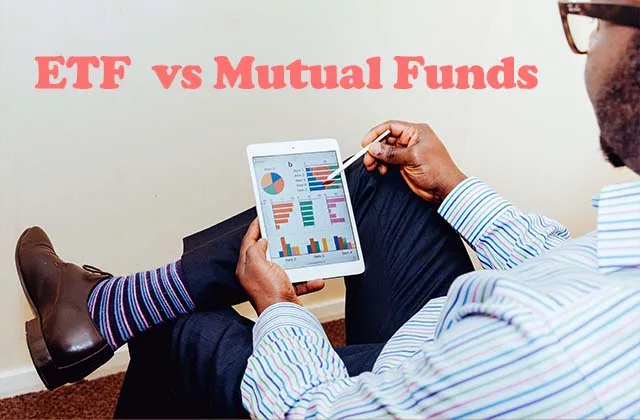If you need to make investments in your hard-earned cash, your financial advisor is prone to advocate quite a lot of choices together with exchange-traded funds and mutual funds. Exchange-traded funds and mutual funds comprise quite a lot of similarities which may confuse a possible investor simply. Nevertheless, some key variations set them aside. Many buyers haven’t got a desire on the subject of selecting between the 2. Each – ETFs and Mutual funds entail a wide range of completely different properties and signify a standard avenue for buyers to diversify their portfolios. Relying on your monetary objectives and funding timeframe, you need to use each of them collectively and use them properly to construct a funding portfolio. so we are going to evaluate the right here ETF vs Mutual Funds. Which one is better?
- UNDERSTANDING EXCHANGE-TRADED FUNDS
Exchange-traded is a kind of mutual fund. They assist retail buyers to acquire broad publicity when it comes to the funding alternatives which can be given to them. These are passively managed Index funds listed on stock exchanges that comprise all of the shares or shares which carry the identical net asset worth of the underlying index, and ETF mutual funds will be bought and bought in real-time at a value that varies all through the day.
- UNDERSTANDING MUTUAL FUNDS
Mutual funds, in contrast to ETFs, can’t be handled all through the day. They’re bought solely on the finish of a buying and selling day primarily based on the calculated value. They’re additionally actively managed by a knowledgeable fund supervisor who has a workforce of researchers and this workforce collectively helps diversify your investments by investing in numerous money-making devices. Mutual funds are nothing but a collective pool of investments by completely different buyers who share a standard goal.
DIFFERENCE BETWEEN ETF AND MUTUAL FUNDS
- ETFs are passively managed whereas mutual funds are actively managed by a knowledgeable fund supervisor who comes with market information experience and helps handle your property.
- Buying a mutual fund unit shouldn’t be beneath your management. You may have to position a request with the fund supervisor to take action, whereas, ETFs will be traded freely available in the market and it is as much as your will once you wish to purchase or promote your items.
- Mutual fund items can solely be traded on the finish of every buying and selling day whereas ETFs will be traded all through the day and the buyers can take selections shortly primarily based available on the market.
- ETFs do not include excessive expenses since they do not should be managed actively whereas mutual funds include a better fund administration price.
- There isn’t any lock-in interval for an exchange-traded fund. Relying on what sort of scheme you select, the lock-in interval for a mutual fund can vary anyplace from 9 days to three years. For instance, an equity-linked financial savings scheme comes with a lock-in interval of three years.
- Inventory orders will be made solely by means of an exchange-traded fund and never a mutual fund.
- ETFs present extra tax advantages to their buyers in comparison with mutual funds owing to the style of creation and redemption.
- Mutual funds can’t be liquidated simply as they arrive with a lock-in interval whereas ETFs have a better liquidity ratio since they’re related to the liquidity of the shares within the index.
- Mutual funds monitor the index however the technique of selecting the property is dependent upon how they’ll beat the index and yield a better efficiency whereas ETFs attempt to match the index value and yield a portfolio just like its index constituents.
ETF VS MUTUAL FUNDS: WHICH ONE IS BETTER?
When you’re concerned about constructing a diversified funding portfolio, each of these choices can serve you in a wonderful method. Nevertheless, as talked about earlier, relying on the timeframe, threat urge for food, and monetary objectives, you’ll be able to determine which possibility is best. For some folks, liquid investments take priority over long-term investments.
Whereas the character of each of these funds is analogous and contemplating they provide a diversified funding portfolio, a wholesome and sensible mixture of ETFs and mutual funds can show to be extraordinarily helpful to your funding report. Nevertheless, earlier than you make any selections, perceive the performance behind each of these funds, assess the market dangers you are keen to take, and seek the advice of a skilled if you need to make sure you’re making the proper funding name for your self. Make investments extra, make investments properly!

